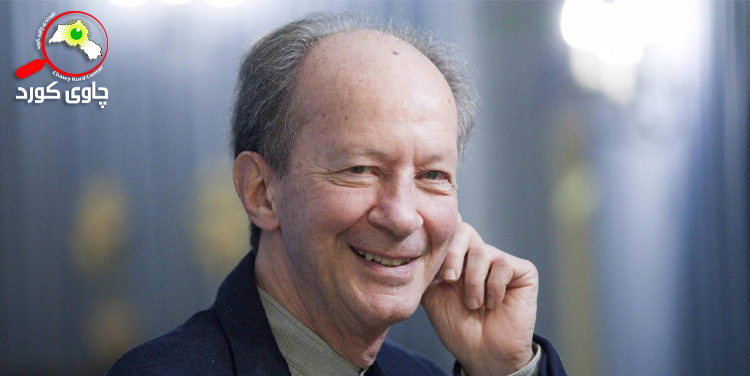In 1958 Karl Jaspers published under the title The Atomic Bomb and the Future of Humanity a book in which he intended to radically question — as the subtitle states — The Political Consciousness of Our Time. The atomic bomb, he begins in the foreword, has produced an absolutely new situation in the history of humanity, confronting it with the inescapable alternative: “either the whole of humanity will be physically destroyed or man must transform his ethical-political condition.” If in the past, as was the case in the early days of Christian communities, men had made “unreal representations” of an end of the world, today for the first time in its history, humanity has the “real possibility” of annihilating itself and all life on earth. This possibility, even if humans do not seem to fully realize it, can only mark for political consciousness a new beginning and imply “a turning point in the entire history of humanity.”
Nearly seventy years later, the “real possibility” of humanity’s self-destruction, which seemed to shake the philosopher’s conscience and immediately engages his readers (the book was widely discussed), seems to have become an obvious fact, which newspapers and politicians conjure up every day as an absolutely normal occurrence. By dint of the talk of emergency — in which the exception becomes, as you know, the rule — the event that Jaspers regarded as unheard of presents itself as an all-too-trivial occurrence whose appropriateness and imminence it is a matter for experts to assess. Since the bomb has ceased to be a decisive “possibility” for human history and instead concerns us closely as one “chance” among others that define a war situation, it will be well then to reconsider afresh the question, which had perhaps not been posed in its proper terms.
Thirteen years later, in an essay significantly entitled The Apocalypse Disappoints, Maurice Blanchot returned to the question of the problem of the end of humanity. And he did so by subjecting Jaspers’ theses to a discreet but no less effective critique. If the theme of the book was the need for epochal change, it is surprising that
“on the part of Jaspers, in the book that is supposed to be the consciousness, resumption, and commentary of this change, nothing has changed — neither in language, nor in thought, nor in political formulas, which are preserved and indeed locked around lifelong prejudices, some very noble, but others very narrow… how is it possible that a question which puts at stake the destiny of mankind and such that to deal with it can only suppose an entirely new thought, has not renewed the language that expresses it and produces only partial and partisan considerations in the political order or urgent and exciting in the spiritual order, but identical to those that have been heard repeated in vain for two thousand years?”
The objection is certainly pertinent, for not only is Jaspers’ book presented as an extensive academic monograph intended to examine the problem in all its aspects, but what the author intends to oppose to destruction is the commonplace of “a universal peace without atomic bombs, with a new life economically based on nuclear energy.” No less peculiar is that the atomic bomb is juxtaposed as an equally deadly danger with the totalitarian rule of Bolshevism, with which it is impossible to come to terms.
The fact is, Blanchot seems to suggest, that such an apocalyptic perspective is necessarily disappointing because it presents as a power in the hands of humanity something that, in truth, is not such. It is, in fact,
“a power that is not in our power, pointing to a possibility of which we are not masters, a probability — let us take it for probable-improbable — that would express a power of ours only if we mastered it safely. For now, however, we are as incapable of mastering it as we are of wanting it, and for one obvious reason: we are not masters of ourselves, because this humanity, capable of being totally destroyed, does not yet exist as a whole.”
On the one hand, a power that cannot be empowered; on the other hand, as the claimed subject of this power, a human community,
“which can be suppressed, but not affirmed, or which could somehow be affirmed only after its disappearance, through the void, impossible to grasp, of this disappearance, something, therefore, that cannot even be destroyed, because it does not exist.”
If, as seems undeniable, the destruction of humanity is not a possibility that humanity consciously disposes of, but remains entrusted to the contingency of the largely random decisions and evaluations of this or that head of state, Jaspers’ argument is then destroyed from the ground up, because men who do not actually have the faculty to destroy themselves cannot even become aware of this possibility in order to ethically and politically transform their consciousness. Jaspers seems here to be repeating the same mistake Husserl had made when, in a 1935 lecture on Philosophy and the Crisis of European Humanity, while identifying the “deviations of rationalism” as the cause of the crisis, he had nonetheless entrusted an undefined European “reason” with the task of guiding humanity in its endless progress toward maturity. The alternative already clearly formulated here between “a disappearance of Europe that has become increasingly estranged from itself and its rational vocation” and a “rebirth of Europe” by virtue of “a heroism of reason,” betrays the unmentionable awareness that where there is a need for a “heroism” there is no longer any place for that “rational vocation” (of which it is specified that it distinguishes European humanity “from the savage Papu,” at least as much as the latter differs from a beast).
What a well-meaning reason does not have the courage to accept is that the end of European humanity or of humanity itself, consigned to anodyne and vain aspirations that leave intact the principle responsible for them, ends up spilling over, as Blanchot had guessed, into “a simple fact about which there is nothing to be said, except that it is the very absence of meaning, something that deserves neither exaltation nor despair and perhaps not even attention.” No historical event — not the atomic war (or, for Husserl, World War I), not the extermination of the Jews, and certainly not the pandemic — can be hypostatized into an epoch-making event, if it is not to become an incomprehensible and vacuous idolum historiae, which one can no longer think about or deal with. It is therefore necessary to drop without reservation Jaspers’ argument, which discounts the inability of Western reason to think through the problem of an end that it has itself produced, but which it is in no way able to master. Confronted with the reality of its own end, it tries to buy time by turning this reality into a possibility that points to a future realization, to an atomic war that reason can still avert. It would perhaps have been more consistent to assume that humanity that has produced the bomb is already spiritually dead and that it is the awareness of the reality and not the possibility of this death that one must begin to think. If thought cannot reasonably pose the problem of the end of the world, it is because thought is always situated in the end, it is at all times an experience of reality and not of the possibility of the end. The war we fear is always going on and is never over, just as the bomb once dropped in Hiroshima and Nagasaki never stopped being dropped. Only from this realization do the end of humanity, atomic war, and climate catastrophes cease to be phantoms that terrify and paralyze a reason incapable of coming to terms with them and instead appear for what they are: political phenomena already ever-present in their contingency and absurdity, which precisely for this reason we no longer need to fear as fatalities without alternatives, but can face each time according to the concrete instances in which they arise and the forces we have at our disposal to counter or escape them. This is what we have learned in the two years that have just passed, and in the face of powerful people who are proving themselves increasingly incapable of governing the emergency they themselves have produced, we intend to treasure it.
By Giorgio Agamben
Translated by Lena Bloch





























































